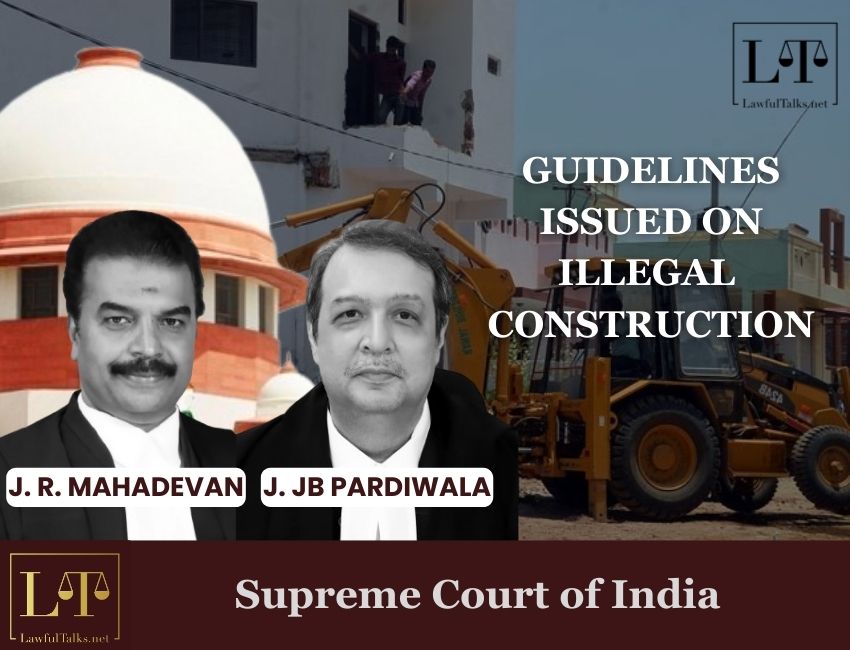Allahabad HC Sets Aside Afzal Ansari's Conviction, Allows Him to Continue as MP

The Supreme Court division bench comprising Justice B. Pardiwala and Justice R. Mahadevan dismissed appeals challenging the Allahabad High Court’s order directing the demolition of unauthorised commercial constructions on a residential plot in Meerut.

The Court reaffirmed the need to strictly enforce building regulations and issued detailed guidelines to prevent unauthorised constructions and ensure accountability among authorities. The Court strongly condemned constructions carried out in violation of approved building plans or without any planning permission, stating:
“…Construction(s) put up in violation of or deviation from the building plan approved by the local authority and the constructions which are audaciously put up without any building planning approval, cannot be encouraged.”
It emphasized that violations must be dealt with firmly, adding:
“Delay in directing rectification of illegalities, administrative failure, regulatory inefficiency, cost of construction and investment, negligence and laxity on the part of the authorities concerned in performing their obligation(s) under the Act, cannot be used as a shield to defend action taken against the illegal/unauthorized constructions.”
The Court also criticized regularization schemes, often used to condone violations, warning that such measures, if not exceptional, undermine orderly urban development and harm the environment:
“The State is unmindful that this gain is insignificant compared to the long-term damage it causes to the orderly urban development and irreversible adverse impact on the environment.”
The Court issued 12 comprehensive directives to prevent and address unauthorised constructions:
-
Builders must provide an undertaking to hand over possession only after obtaining completion/occupation certificates.
-
Approved building plans must be displayed at construction sites throughout construction, with periodic inspections by authorities.
-
Completion/occupation certificates must be issued promptly after inspection, provided there are no deviations from approved plans.
-
Essential services like electricity, water, and sewerage connections should only be provided upon submission of completion/occupation certificates.
-
Post-certificate violations must lead to action against the builder, owner, or occupant, and erring officials must face departmental proceedings.
-
No business or trade licenses should be granted for unauthorised buildings.
-
Development must comply with zonal plans, and modifications must strictly follow rules and consider public interest.
-
Departments must cooperate promptly in actions against unauthorised constructions, with disciplinary action for delays or non-cooperation.
-
Applications or appeals related to completion certificates, regularisation, or deviations must be resolved within 90 days.
-
States/UTs must issue circulars to ensure compliance with directions, warning of strict action against non-adherence.
-
Banks and financial institutions must sanction loans for buildings only after verifying valid completion/occupation certificates.
-
Non-compliance with these directives will result in contempt proceedings and prosecution under applicable laws.
Case Details: Rajendra Kumar Barjatya & Anr. v. U.P. Avas Evam Vikas Parishad & Ors., 2024 INSC 990
Leave a Comment

Sonam Pandey
Law Student
Latest Posts
Categories
- International News 19 Posts
- Supreme Court 323 Posts
- High Courts 337 Posts


































































































































































































































































































































































































































































































































































































































































































